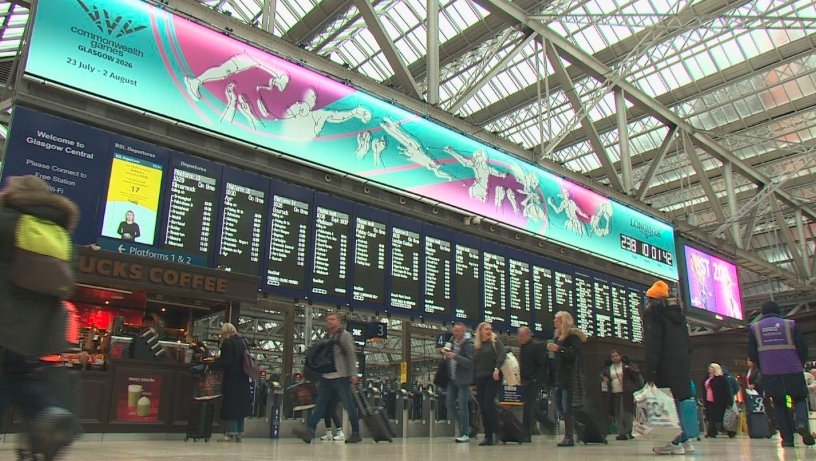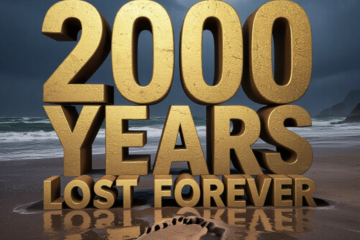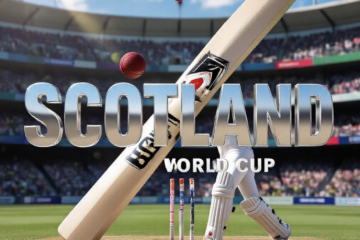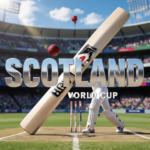Glasgow has kicked off the excitement for the 2026 Commonwealth Games with a new countdown clock at Central Station. The clock, unveiled on November 27, 2025, marks the start of the buildup to the event set for July 23 to August 2, 2026, drawing athletes and fans from around the world.
Clock Design Draws from City Heritage
The striking clock stretches 23 meters long and sits above the main departure board in one of Scotland’s busiest train stations. Artist Agnes Jones, based in Glasgow, crafted it from a single line of steel to honor the city’s shipbuilding past.
Jones drew inspiration from the movements of athletes in the 10 sports featured at the Games. She spent time studying videos of competitors in action, then bent and welded the steel to form outlines of figures in dynamic poses.
This piece not only counts down the days but also serves as public art. Organizers expect over 25 million people to see it as they pass through the station in the coming months.
The installation took a team four nights to complete, working during off-hours to avoid disrupting travelers.

Launch Event Brings Athletes Together
Several top athletes joined Jones at the unveiling to flip the switch and start the timer. Team Scotland’s Robyn Love from 3×3 wheelchair basketball and weightlifter Agata Herbert stood alongside England’s Jamell Anderson and Welsh boxer Rosie Eccles.
George Black, chairman of Glasgow 2026, spoke at the event about the clock’s role in building buzz. He noted that Central Station will act as a key hub during the Games, linking venues, fans, and communities.
The launch highlighted the inclusive spirit of the Games, with athletes from different nations sharing stories of preparation and excitement.
Photos from the event show the group smiling in front of the glowing display, which features blue and purple hues to match the Games’ branding.
Games Set to Boost Glasgow Economy
The 2026 Commonwealth Games will feature 10 sports across four venues in an eight-mile corridor through the city. This setup aims to keep things compact and accessible, unlike larger past events.
More than 3,000 athletes from 74 nations and territories will compete, bringing global attention to Glasgow. Events include athletics, swimming, cycling, and netball, with matches scheduled from July 25 to August 2 for some sports.
Local leaders predict a major economic lift, with over 100 million pounds in investment. This follows the Scottish government’s backing in 2024, which saved the Games after other hosts pulled out.
- Expected visitor surge to fill hotels and restaurants
- Job creation in event staffing and tourism
- Long-term benefits from improved sports facilities
The Games come at a time when Glasgow is rebounding from recent challenges, including economic shifts post-pandemic.
Key Facts About the 2026 Commonwealth Games
Organizers have released details to help fans plan ahead. Here’s a quick overview of the main elements:
| Aspect | Details |
|---|---|
| Dates | July 23 to August 2, 2026 |
| Sports | 10 total, including athletics, swimming, cycling, gymnastics, judo, lawn bowls, netball, squash, table tennis, and weightlifting |
| Venues | 4 main sites: Scotstoun Stadium, Tollcross International Swimming Centre, Emirates Arena, and Kelvingrove Park |
| Athletes | Over 3,000 from 74 nations |
| Spectators | Expected to draw thousands, with tickets going on sale soon |
This table shows how the scaled-back format focuses on efficiency while maintaining high competition levels.
Building Anticipation for Summer Spectacle
With just over 200 days until the opening ceremony, the clock serves as a daily reminder for locals and visitors. It ties into broader promotions, like the netball match schedule announced earlier in November 2025.
Athletes are ramping up training, with stories emerging of national teams preparing for medal contention. Scotland aims to build on its 2014 success, when Glasgow last hosted and won 53 medals.
The event promises to showcase diversity and unity, with para-sports integrated throughout. Fans can look forward to live broadcasts and community events leading up to the Games.
As Glasgow gears up, this countdown clock stands as a symbol of renewal and pride for the city.
What do you think about the new clock or the upcoming Games? Share your thoughts in the comments and spread the word to friends who love sports.


















